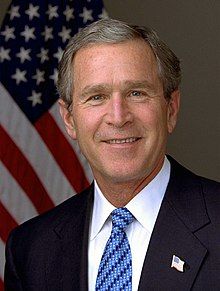User:Jrath1/sandbox

Power elite
[edit]The power elite is a term used by Mills to describe a relatively small, loosely connected group of individuals who dominate American policymaking. This group includes bureaucratic, corporate, intellectual, military, media, and government elites who control the principal institutions in the United States and whose opinions and actions influence the decisions of the policymakers.[1] The basis for membership of a power elite is institutional power, namely an influential position within a prominent private or public organization.[2] A study of the French corporate elite has shown that social class continues to hold sway in determining who joins this elite group, with those from the upper-middle class tending to dominate.[3] Another study (published in 2002) of power elites in the United States during the administration of President George W. Bush (in office 2001-2009) identified 7,314 institutional positions of power encompassing 5,778 individuals.[4] A later study of U.S. society noted demographic characteristics of this elite group as follows: [citation needed]
 | This is a user sandbox of Jrath1. You can use it for testing or practicing edits. This is not the sandbox where you should draft your assigned article for a dashboard.wikiedu.org course. To find the right sandbox for your assignment, visit your Dashboard course page and follow the Sandbox Draft link for your assigned article in the My Articles section. |
- ^ power elite. (n.d.). The American Heritage® New Dictionary of Cultural Literacy, Third Edition. Retrieved January 18, 2015, from Dictionary.com website: http://dictionary.reference.com/browse/power%20elite
- ^ Doob, Christopher (2013). Social Inequality and Social Stratification in US Society. Upper Saddle River, New Jersey: Pearson Education Inc. p. 38. ISBN 978-0-205-79241-2.
- ^ Maclean, Mairi; Harvey, Charles; Kling, Gerhard (2014-06-01). "Pathways to Power: Class, Hyper-Agency and the French Corporate Elite" (PDF). Organization Studies. 35 (6): 825–855. doi:10.1177/0170840613509919. ISSN 0170-8406. S2CID 145716192.
- ^ Dye, Thomas (2002). Who's Running America? The Bush Restoration, 7th edition. ISBN 9780130974624.
